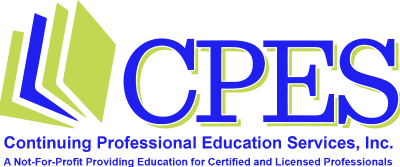
Last Held: April 09 & 10, 2025
The use of statistical analysis to evaluate environmental data may be invaluable for evaluation of remediation data, or necessary to comply with regulations or technical guidance.
The use of statistics can reveal important information otherwise hidden data. Statistical analyses provide important lines of evidence to support site remediation decisions. However, identifying appropriate statistical tests and knowing how to apply them can be perplexing for investigators, and understanding statistical analysis completed by others can be just as challenging for those reviewing technical reports.
As many Licensed Site Remediation Professionals (LSRPs) and non-LSRPs supporting site remediation projects may not be proficient in the use of statistics in evaluating data, a rudimentary discussion regarding the value and application of statistical analysis for interpretation of data associated with site remediation will be presented.
A workshop using EPA software and case studies is included that provides practical training. If you’re just starting out, or a seasoned professional, the course provides both fundamental concepts for application of statistics and practical examples of statistical methods do advance interpretation skills for those who may already be using statistics for site remediation projects.
Featured Topics
This program will present statistical concepts and assumptions, review common statistical tests required in regulations and guidance, and address various scenarios that may benefit from and/or require statistical analysis of data. The program will address typical challenges working with environmental data (e.g., non-detects, non-normal distributions, outliers) and include review of statistical analysis case studies used for remedial investigation and remedial action under NJDEP SRP regulations and guidance documents.
“Excellent job of providing basic concepts for statistical analysis with real world applications.”
Student Testimonial
A hands-on workshop session will allow attendees to work with data using USEPA ProUCL. Use of personal computers with Microsoft Excel and Wi-Fi capability for downloading USEPA freeware is encouraged for participation in portions of this course.
Who Should Attend
- LSRPs and LSRPs-in-Training
- Environmental Professionals
- Project Managers
- Engineers
- Technical Coordinators
- Risk Assessment Professionals

Instructors
A Senior Principal Consultant and Technical Director for TRC Environmental Corporation (TRC) with 40 years of continuous experience and progressive responsibility in environmental science, testing, investigations, statistical analysis, remediation and project management. Dr. Lippencott has conducted statistical analysis for numerous projects involving regulatory compliance, data evaluation, risk assessment and site remediation.
Dr. Lippencott provides senior technical support and direction for clients and legal counsel, and for TRC’s project managers and senior staff in areas including surface water discharge and wetlands permitting; sediment, surface water, ecological evaluations and risk assessment; statistical analysis; data quality assurance; regulatory applicability review; and CERCLA Cost Allocation.
Dr. Lippencott is a qualified testifying expert witness and provides litigation support and expert reports for various litigation and arbitration cases.
Dr. Lippencott has a B.S. degree in Biology from Montana State University, and M.S. and Ph.D. degrees in Environmental Science from NJIT and Rutgers. Dr. Lippencott previously served as an adjunct professor in the NJIT Department of Chemistry and Environmental Science and is an appointed member of the New Jersey Department of Environmental Protection’s Science Advisory Board, and CPES Board of Directors.

Continuing Education Credits:
- NJ LSRP: 6 Technical CECs (NJSRPLB Course# 2018-027)
- C T LEPs: 6 CECs (CTLEP-507 W)
- NJ Professional Engineers: 6 CPCs
- ATTENTION HEALTH OFFICERS AND REGISTERED ENVIRONMENTAL HEALTH SPECIALISTS: Participants who complete this education program will be awarded 6 NJ Public Health Continuing Education Contact Hours (CEs)
- This course is eligible toward PDHs for Pennsylvania Professional Geologists
Call 732-907-7269 or Contact Us With Questions or to Learn More
Back to a complete list of All Courses
